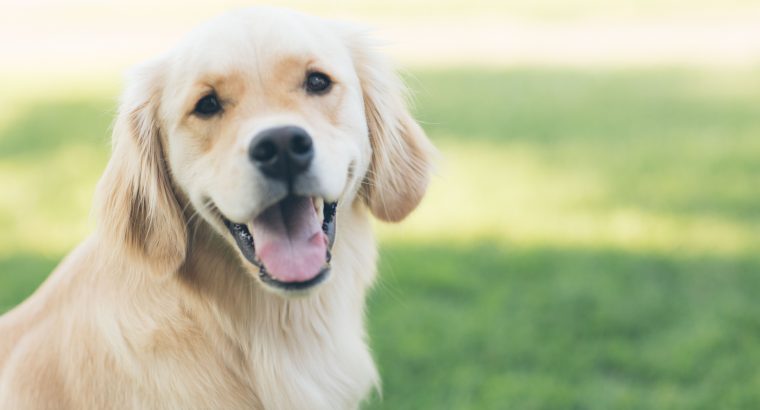Hunting Dog Breeds and Traits
The practice of hunting with dogs is a tapestry woven with threads of history, tradition, and the deep-seated bond between humans and canines. For thousands of years, dogs have been more than mere companions; they have been vital partners in the pursuit of sustenance and sport.
Over these millennia, a diverse array of specialised breeds has emerged, each honed for specific hunting tasks. While many of these breeds now spend more time as family pets, they still retain many of the traits that made them such prized hunting companions.
Hounds: Scent and Sight Specialists
Hounds are among the most traditional hunting dogs, known for their exceptional tracking abilities. They are broadly categorised into two types: scent hounds and sight hounds.
Scent Hounds
Breeds like the Bloodhound and Beagle are renowned for their powerful sense of smell. These dogs track game by following scents, often over long distances and challenging terrains. They are tenacious, often baying loudly to signal their pursuit, a valuable trait for hunters tracking their progress.
Sight Hounds
Breeds such as the Greyhound and Whippet rely on their acute vision and speed. They are built for short, high-speed chases, making them ideal for hunting fast-moving prey like rabbits and deer.
Terriers: The Tenacious Hunters
Terriers, originally bred to hunt vermin and small game, are known for their fearless and energetic nature. Breeds like the Jack Russell Terrier and Border Terrier are small but mighty, often used for flushing out game from dense cover or burrows. Their compact size and agility allow them to navigate through challenging terrains where larger breeds might struggle.
Retrievers: The Waterfowl Experts
Retrievers are synonymous with waterfowl hunting. Breeds such as the Golden Retriever and Labrador Retriever are prized for their soft mouths, which allow them to retrieve game without causing damage. Their water-resistant coats and webbed feet make them excellent swimmers, adept at retrieving game from water. They are also known for their trainability and gentle temperament, making them excellent companions both in and out of the hunting field.
Pointers and Setters: The Field Specialists
Pointers and Setters are celebrated for their ability to locate and ‘point’ towards game, particularly birds. Pointers, like the German Shorthaired Pointer, are known for their ‘stiff’ stance upon finding game, directing hunters to the location. Setters, such as the English Setter, work similarly but often ‘set’ by crouching near the game. These breeds combine remarkable speed, endurance, and an acute sense of smell, making them invaluable in bird hunting.
The Evolution of Hunting Breeds
The development of these breeds reflects the changing needs of hunters through history. For instance, as hunting shifted from a necessity to a sport, breeds like the English Foxhound were developed for their stamina and ability to participate in long hunts. The industrial revolution and changes in land use also influenced breed development, with smaller breeds becoming more popular as large game hunting declined.
Modern Hunters and Their Canine Companions
Modern hunters continue to rely on these breeds. The bond between hunter and dog is profound, built on mutual trust and respect. Training these dogs is not just about honing their natural abilities but also about developing a deep understanding and communication between the hunter and the dog.
From Hunters to Household Pets
The transition of hunting dogs from field companions to household pets is a remarkable journey, showcasing their adaptability and enduring appeal. Once bred and trained exclusively for hunting, many of these breeds have found a new role as beloved family members. This shift is not just a testament to their versatility but also to the deep emotional connection that humans have developed with these animals over centuries.
Understanding the Innate Characteristics
Each hunting breed carries innate behaviours and traits honed for specific hunting tasks, and these characteristics often translate into their roles as pets. For instance, the boundless energy of a Springer Spaniel, invaluable in flushing game, might manifest as a need for regular, vigorous exercise in a home setting. Similarly, a Beagle’s tendency to follow scents can lead to a propensity for wandering. Potential pet owners must understand these inherent traits and be prepared to accommodate them in a domestic environment.
Meeting Their Needs
Adopting a hunting breed means committing to fulfilling their physical and mental stimulation needs. These dogs often require more exercise and mental engagement than non-hunting breeds. Adequate space for running, games that challenge their tracking or retrieving skills, and consistent training sessions are essential for their well-being. Without a proper outlet for their energy and instincts, these dogs may develop behavioural issues.
The Training Advantage
Many hunting breeds are highly trainable, a trait that serves well in a household setting. Their eagerness to please, combined with a sharp intelligence, makes them responsive to obedience training. This trainability also opens the door to activities like agility sports, scent work, or therapy dog training, providing enriching experiences for the dog and owner alike.
Socialisation and Adaptability
Hunting dogs are often social animals, used to working in packs or closely with humans. This social nature can make them excellent family pets, capable of forming strong bonds with all family members, including children. However, early socialisation is key, especially for breeds that might have a strong prey drive or are used to an outdoor, active lifestyle.
Health Considerations
Prospective owners should be aware of health issues prevalent in specific hunting breeds. Some, like the Labrador Retriever, may be prone to obesity if their diet and exercise are not carefully managed. Others may have breed-specific health concerns that require regular veterinary check-ups and care.
A Rewarding Relationship
Despite these considerations, the transition from hunter to household pet can be immensely rewarding. These dogs often bring not just energy and joy into a home, but also a sense of companionship that is deeply rooted in their heritage as hunting companions. Their loyalty, intelligence, and affectionate nature often make them a cherished part of any family.
Ethical Hunting and Dog Care
Ethical hunting practices and proper care for these dogs are paramount. Responsible hunters ensure their dogs are well-trained, treated humanely, and only used in legal and sustainable hunting activities. In return, these dogs provide not just assistance in the hunt but companionship and loyalty that transcend the field.
The world of hunting dogs is as varied as it is fascinating. Each breed, with its unique history and characteristics, highlights the remarkable relationship between humans and dogs. Whether in the field, by the water, or at home, these dogs continue to play a vital role in the lives of those who cherish them.






